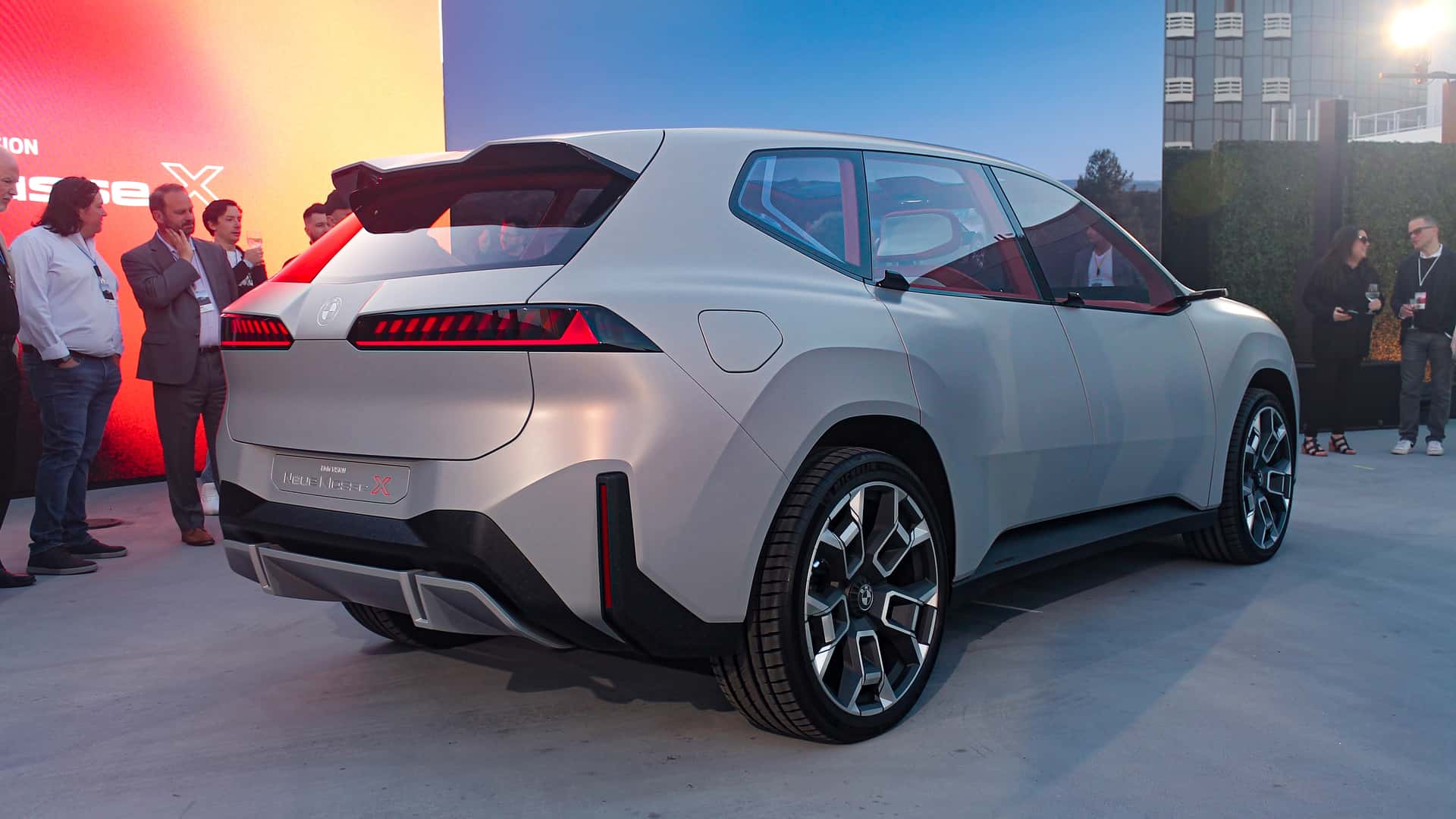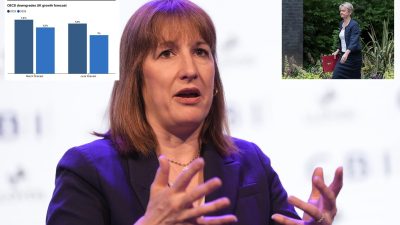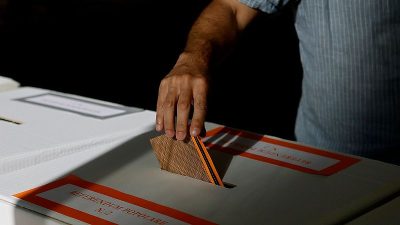The battery-powered iX5 is coming next year, followed by the iX7 in 2027. A coupe-like electric SUV is expected too—all made in the U.S.
- BMW’s plant in South Carolina will assemble the all-electric X5 and X7 SUVs.
- The move, coupled with local battery production, should shield BMW from the tariff chaos.
BMW’s South Carolina factory is the largest U.S. automotive exporter by value, making the overwhelming majority of the world’s SUVs with a Roundel badge. Now, it looks like that trend will continue in the electric era too.
BMW will build the electric versions of the upcoming X5 and X7 SUVs—most likely called the iX5 and iX7—at its Spartanburg plant in South Carolina, the company confirmed for
Wards Auto
. An iX6 coupe similar to the current X6 is expected to follow.
Currently, BMW’s U.S. factory is churning out no fewer than eight combustion-powered SUVs, and by 2030, the German automaker wants to add
at least six electric SUVs to its assembly lines
.
The first American-made BMW EVs will be the iX5, which is set to go into production next year, followed by the larger iX7, which is scheduled for 2027. The latter will become BMW’s first full-size all-electric model, competing for the same customers as the Cadillac Escalade IQ.
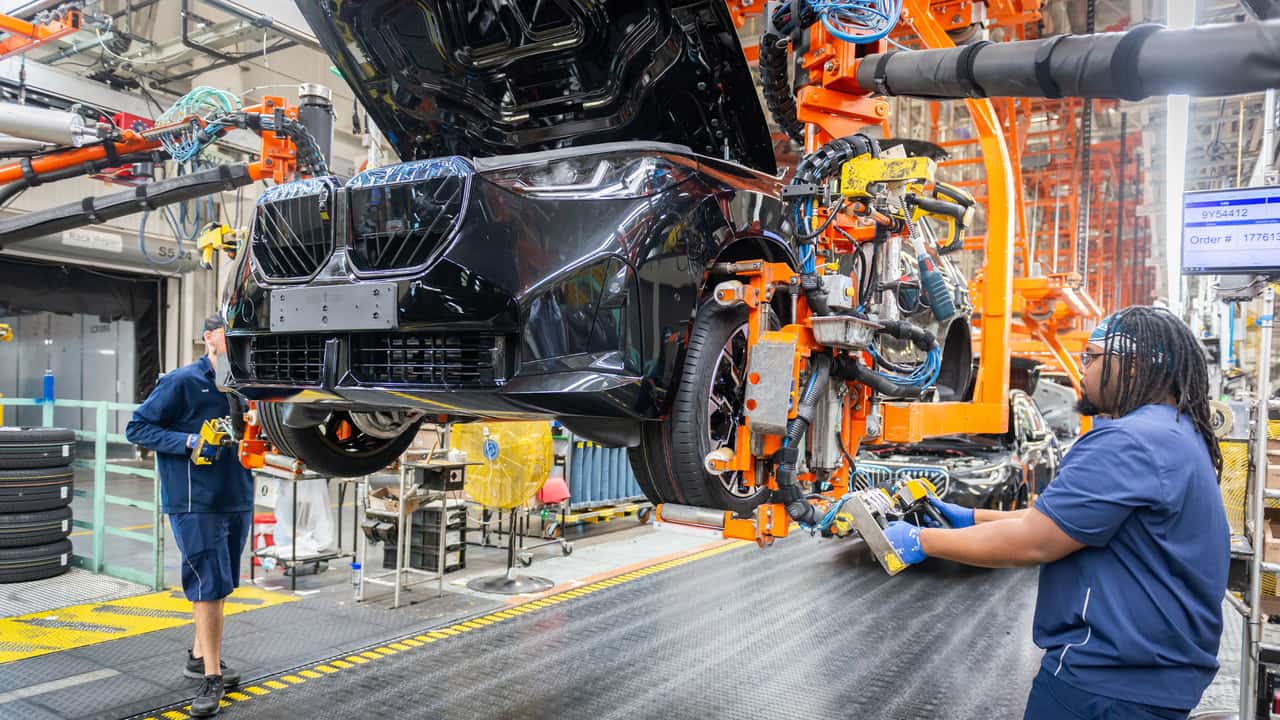
BMW builds the X3, X4, X5, X6, X7, X5 M, X6 M, and XM SUVs at the Spartanburg plant in South Carolina.
Meanwhile, the mid-size iX5 will likely replace the iX and go head to head with the likes of the
Tesla Model X
and
Cadillac Vistiq
. However, while the Model X and Vistiq are based on purpose-built electric vehicle platforms, the iX5 (and iX7 for that matter) will continue using the CLAR architecture, which is designed to easily accommodate either an electric powertrain or a combustion engine and transmission.
That said, both electric SUVs will borrow quite a lot of goodies from the new EV-only
Neue Klasse
architecture, such as motors, batteries, and controllers, making for a much more efficient drivetrain. Speaking of batteries, BMW is investing $700 million in the Spartanburg plant to build a new battery facility nearby, as well as an extra $1 billion to upgrade the vehicle assembly lines.
- These EVs Far Outperform Their EPA Range On The Highway
- The Updated BMW i4 Is More Powerful Than An M4 CS
- BMW Is Putting Solid-State Batteries On The Road
- BMW Neue Klasse EVs Shed More Camouflage Ahead Of Reveal
This should give the company some peace of mind amid the on-again-off-again import tariff saga that has shaken the industry.
The smaller BMW
iX3
, the first of the new wave of Neue Klasse-based EVs, will be revealed in September, followed by the i3 sedan next year. That said, it’s unclear where the U.S.-spec iX3 crossover will be sourced from. One rumor says
Mexico
, but that has not been confirmed yet. In Europe, the battery-powered X3 will be built at
a new factory in Hungary
.
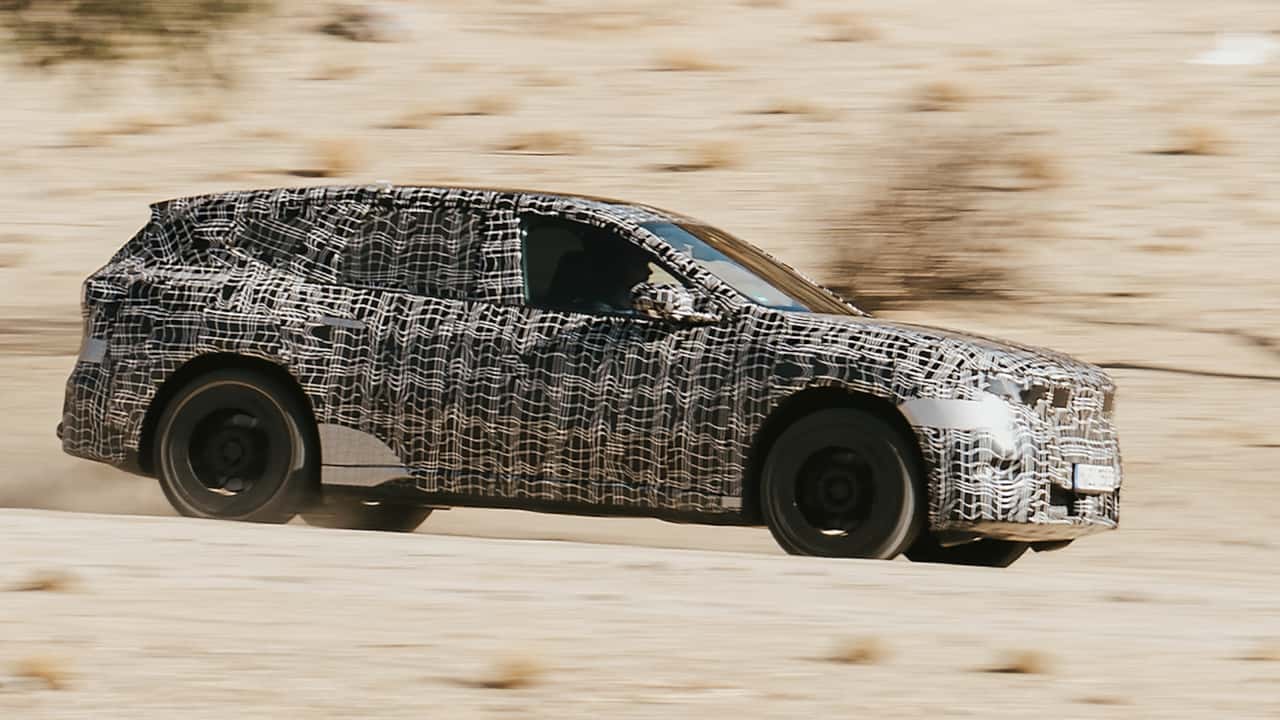
BMW iX3 (new class) during heat tests
Earlier this year,
BMW
said its new EVs will be capable of delivering
up to 560 miles of range
, thanks to a myriad of technological improvements, including silicon carbide (SiC) semiconductor components, which are much more efficient than regular silicon-based ones.
Newly developed cylindrical batteries
are also a big part of BMW’s bold EV push, with charging times claimed to be 30% shorter than what’s currently available.

